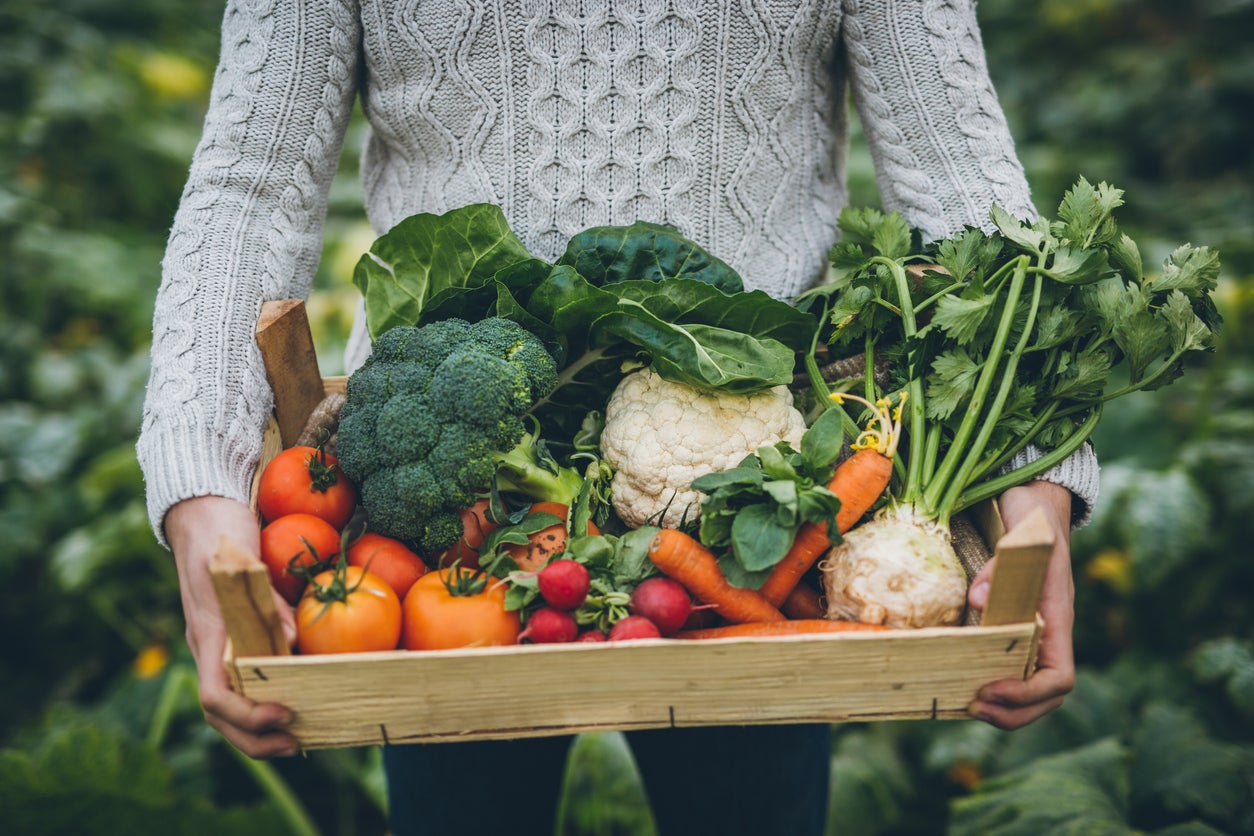This is how I’m changing my food habits to reduce carbon emissions
Our food habits are impacting the climate, but there are many ways we can help – including learning how to shop and cook in a more environmentally conscious way


Your support helps us to tell the story
From reproductive rights to climate change to Big Tech, The Independent is on the ground when the story is developing. Whether it's investigating the financials of Elon Musk's pro-Trump PAC or producing our latest documentary, 'The A Word', which shines a light on the American women fighting for reproductive rights, we know how important it is to parse out the facts from the messaging.
At such a critical moment in US history, we need reporters on the ground. Your donation allows us to keep sending journalists to speak to both sides of the story.
The Independent is trusted by Americans across the entire political spectrum. And unlike many other quality news outlets, we choose not to lock Americans out of our reporting and analysis with paywalls. We believe quality journalism should be available to everyone, paid for by those who can afford it.
Your support makes all the difference.Boris Johnson’s plan to reduce carbon emissions in the UK by 78 per cent by 2035, with a view of becoming carbon-neutral by 2050, is an impressive and essential move towards tackling climate change. It has been welcomed by environmental organisations, from the Energy Saving Trust to the World Wildlife Foundation (WWF), with the latter stating the next stage is for the government to “show it truly means business … by publishing a comprehensive action plan on how it will deliver this carbon budget”.
According to Sustain: Alliance for Better Food and Farming, between 20 to 30 per cent of UK greenhouse gas emissions – primarily consisting of carbon dioxide (CO2), methane (CH4) and nitrous oxide (NO2) – caused through human activity comes from the food industry. Of those emissions, the United Nations Food and Agriculture Organisation claims 55 per cent results from livestock farming alone.
There is no doubt our food industry contributes heavily to greenhouse gas emissions. Therefore, while the country steers towards a greener, more sustainable way of living – and although the government is yet to address the impact of food production on the environment – this is where I have chosen to focus my efforts. I am learning how to shop and cook in a more environmentally conscious way. After all, what better way is there to encourage a transformation on an industrial level than by showing that the same change is possible, and being made, within communities?
My first change was to shop less at big-name supermarkets, and instead support local markets. This way, I can find out where my fruit, vegetables, meat, fish or dairy were sourced by talking to stallholders directly. This gives me an understanding of the practices that may have been used during production and how far the food has travelled.
The big benefit of local markets is that much of the produce is grown or reared in nearby regions. This means less fuel has been burned during transport, less energy is being used for refrigeration and storage and less packaging is needed for short-haul travel. Yes, it has meant cutting out more ‘exotic’ favourites such as avocado, mango and pineapple in my cupboards – but that is a small, barely noticeably, change when you’re enjoying fresh fruit and veg’. Additionally, supporting local businesses couldn’t come at a better time as Britain’s economy negotiates the pandemic and its subsequent lockdowns, as well as the trade policy changes associated with Brexit.
Markets also sell fruit and vegetables that may be less aesthetically pleasing but are still as delicious as their perfectly shaped supermarket alternatives. The fact that big chains typically throw out food simply for not looking perfect is a practice that shocks me. Especially when you consider an estimated 30 to 40 per cent of our food ends up as waste each year. That’s enough to feed disadvantaged communities around the world, several times over.
Buying organic is a positive switch as products are free from chemicals and pesticides that can harm the environment, and in particular our waterways. Organic farming methods are generally kinder to livestock, too – although it doesn’t necessarily reduce emissions.
Another simple change has been swapping the likes of tinned or frozen food for their fresh, loose counterparts. Fresh means less energy has gone into the production and storage process and loose means there is no packaging to deal with. By pre-planning meals for the week ahead, I only buy fresh food as I need it, ensuring nothing is going to waste.
As is the case in many households, cutting meat out completely isn’t viable for my family. However, it is still important to consider the undeniable impact of livestock farming. Eating one extra meat-free meal a day can make a difference. If we all made that small change to our diet, the demand on livestock farming would be significantly lower.
Less pressure to develop cattle or sheep farms would result in less deforestation, allowing trees to survive and soak up more of the carbon we’re releasing into the atmosphere. In turn, this would reduce the destruction of ecosystems and wildlife habitats – allowing the planet to thrive alongside humanity. Perhaps any land no longer used for farming could even be reforested. We have to start somewhere, so why not here?
Karen Edwards is the author of The Planet-Friendly Kitchen
Join our commenting forum
Join thought-provoking conversations, follow other Independent readers and see their replies
Comments